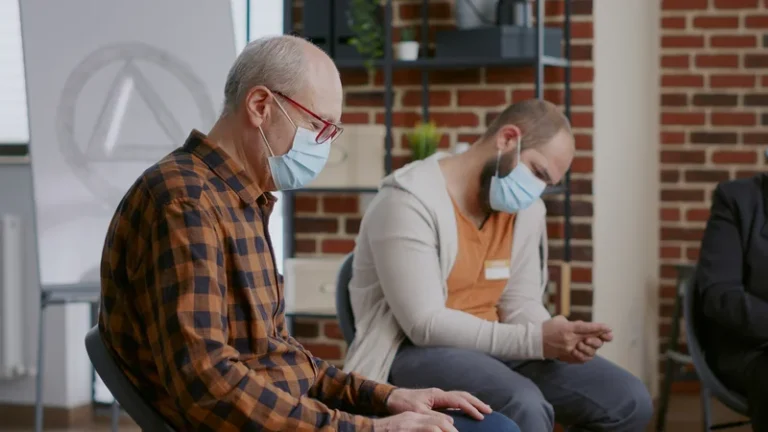Support for People Who Struggling with Alcohol Addiction

Did you know that 40 million people suffer from substance abuse disorder and only 11% receive dedicated care? People who suffer from alcohol addiction and individuals surrounding them should know that there are help and support available. No one should have to do it alone. Recovery from addiction is no easy task, and the consequences of relapse can be devastating, even deadly. Fortunately, now there are many support options out there.
In addition to having a recovery plan, one should build a support system for sobriety, which might include AA, NA, Celebrate Recovery, sponsors, outpatient addiction and mental treatment, and family and friends who support one’s sobriety. If you are used to doing it along, you must overcome your social fears and reach out to healthy others for support because if you could have solved the addiction by yourself, you would have it done long ago.
An important point to remember is that there is no one size fits approach to achieving sustained recovery from addiction. The key is to find a support system that works best for the person in recovery and makes them feel comfortable. This often means trying different things until you find the treatment options that seem to work best for you or your loved one.

Friends and Family
Alcoholism is a very isolating disease in people. It has a negative impact on relationships on people’s lives, so it is important when a person goes into a recovery that they begin to establish quality relationships with other people in their life. At the same time, it is important to keep in mind that friends that the addict was drinking with and hanging out at the bars are not the right support source.
Thus, friends and family that want to see this individual successfully fully recover will play an especially important role after alcoholics get home after treatment. This is the time when many of them can get back into trouble and need the most support. They need a person who they can rely on and reach out at any time. Getting into a circle of friends and people who are supportive of the recovery and who are not encouraging the recovering addict to turn to alcohol when obstacles arise.


Take back control of your life and start on the road to recovery now.
Professional Help
The first step to getting free from addiction is abstinence. This usually requires medically supervised detoxification to relieve the sometimes life-threatening physical effects of withdrawal. Some people in recovery may benefit from medication that reestablishes normal brain function, diminishes cravings, or treats coexisting mental health problems.
Professional help can also be received in the form of mental health therapy. This is another component in a successful recovery plan and helps with modifying attitudes and behaviors related to addiction. Common approaches include cognitive behavioral therapy, motivational interviewing, couples and family counseling, and working with a recovery coach.
Individual therapy with an addiction specialist is a great choice for those people who do not like going into groups. Many have found it very effective to work individually with someone. Others prefer professional treatment centers, which can be connected to hospitals or be freestanding community-based organizations.
Alcoholism Support Groups
Support groups for alcoholics come in many forms, but they all have one goal in common: helping the addict to get well and to stop or greatly reduce their drinking. Peer support groups can be an invaluable source of guidance, assistance, and encouragement for individuals in recovery from alcohol addiction, as well as for family and friends impacted by the addiction.

Many addicts feel like outsiders, so group meetings and therapy can create a sense of belongingness, which is important for recovery and good mental health. This is also a place where one can meet new people and form lifelong friendships. Attending group meetings can become a major part of the structure and routine in one’s recovery, so the individuals know where he or she needs to be, and what they need to be doing every hour of every day to avoid wandering off into the minefields that trigger a relapse.
Twelve-step programs like Alcoholics Anonymous and its many offshoots are among the best-known peer support options. Alcoholics Anonymous is an international foundation that believes alcoholism is a disease. To beat the illness, the group recommends that alcoholics abstain from all alcohol from the rest of their lives. In addition to twelve steps, AA incorporates prayer and references to a higher power as a part of its healing process. If you are uncomfortable with spiritual references, Alcoholics Anonymous is not the only support group available for alcohol addicts.
Alcoholism support groups’ approach does not work for everyone, and meetings may be geographically inaccessible, so alternatives such as SMART Recovery, Moderation Management, secular organizations for sobriety, and others have evolved. Thanks to social media, many of them are online, where they afford the added benefits of being available 24/7, allowing participants to remain anonymous.
SMART Recovery, which stands for self-management and recovery training, for example, does not believe that alcoholism is a disease and keeps religion out of the healing process. It approaches alcohol addiction as a mental issue and seeks to change a person’s mindset about drinking. It has a group format where people can come and find other people who are going through the same kinds of things or have gone through the same kind of issues around alcohol.




